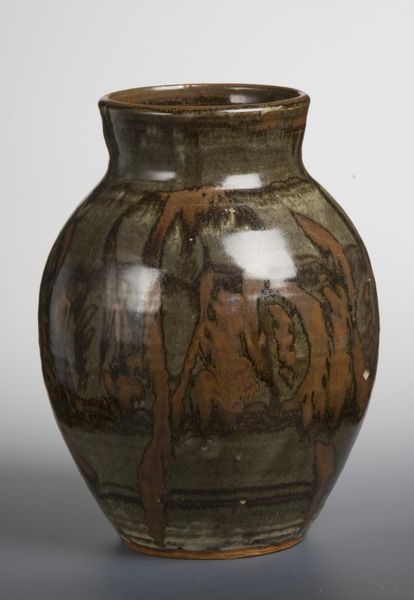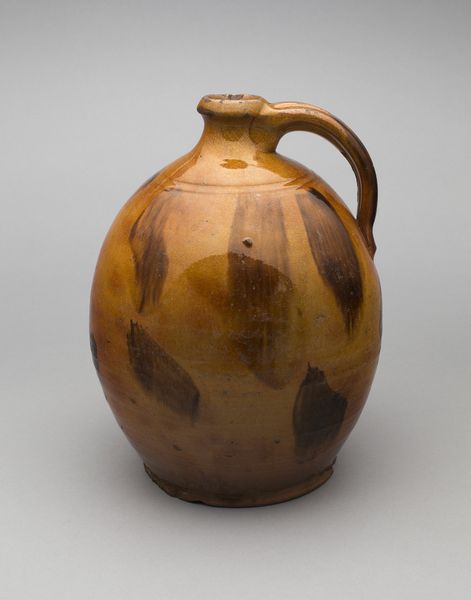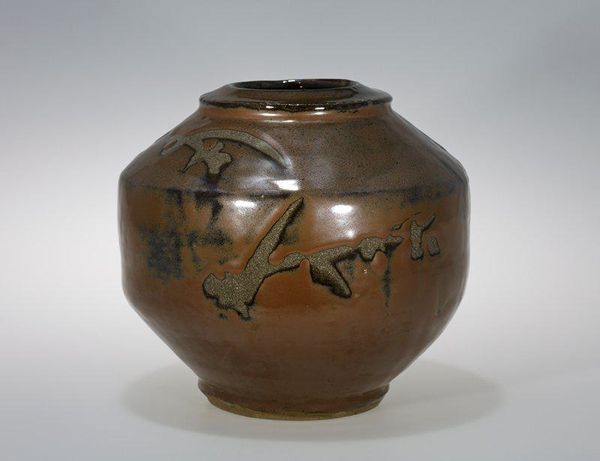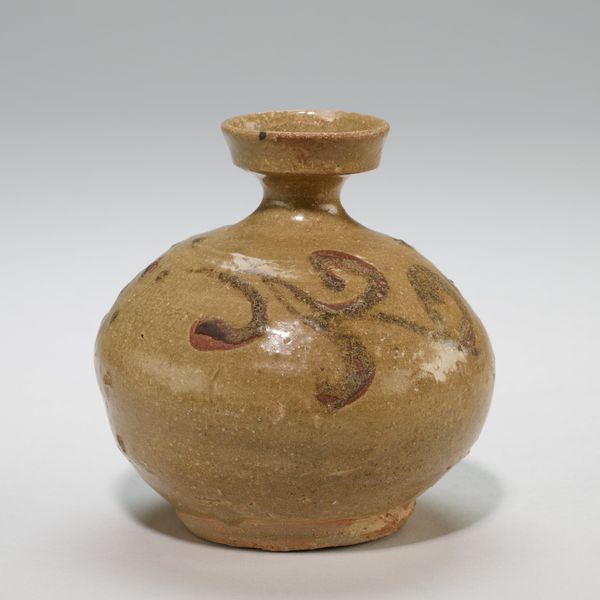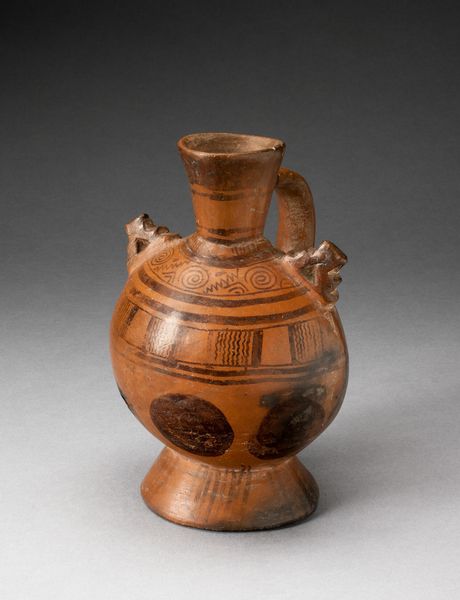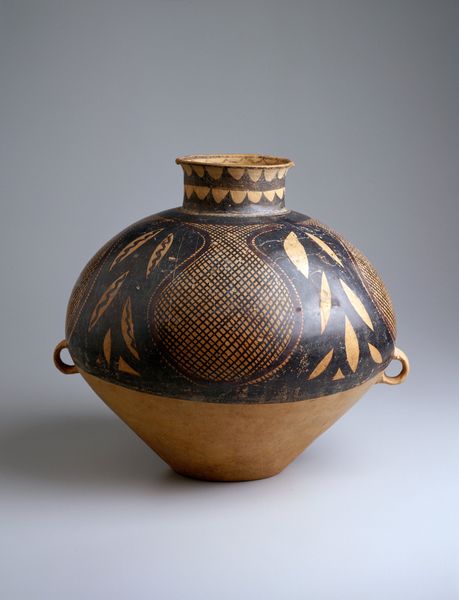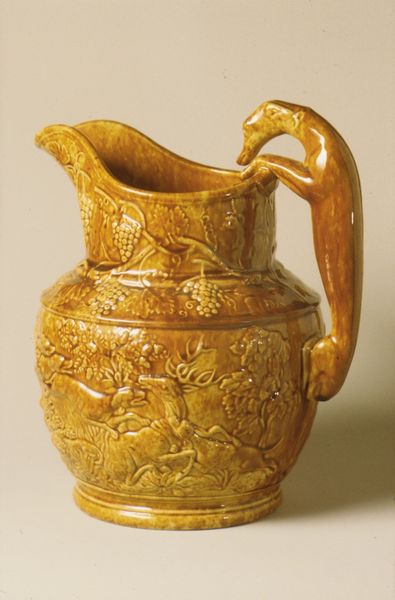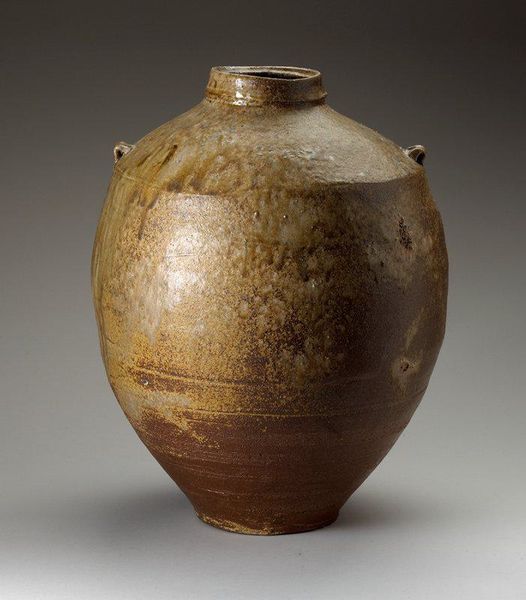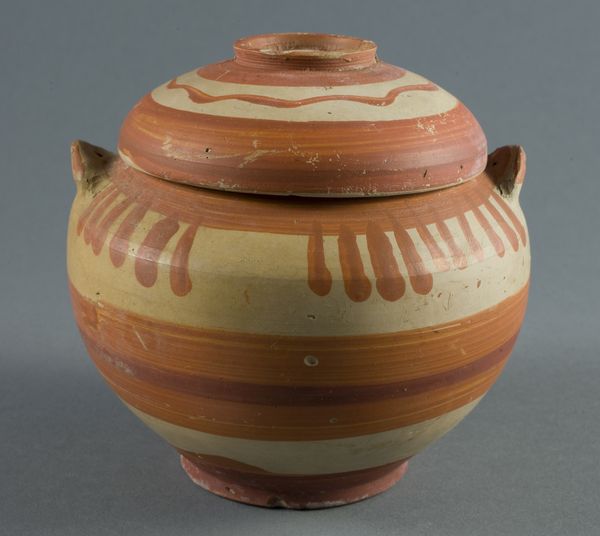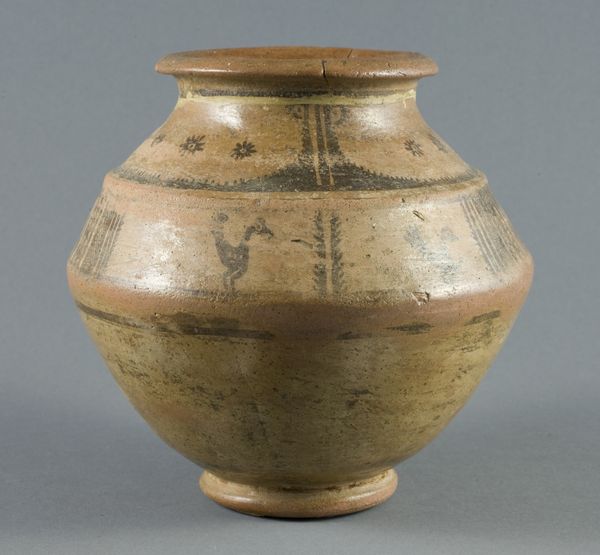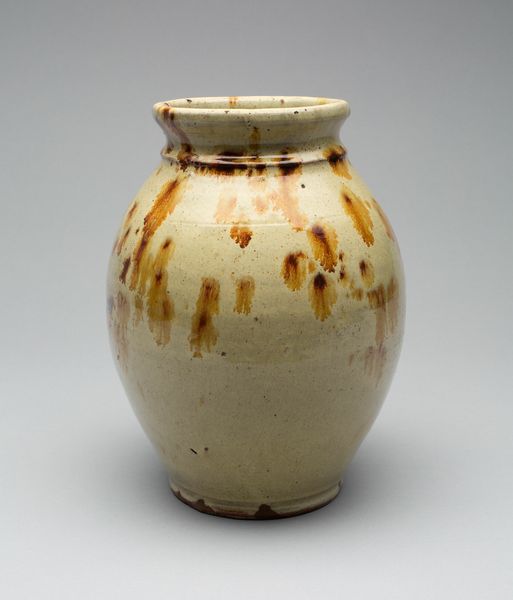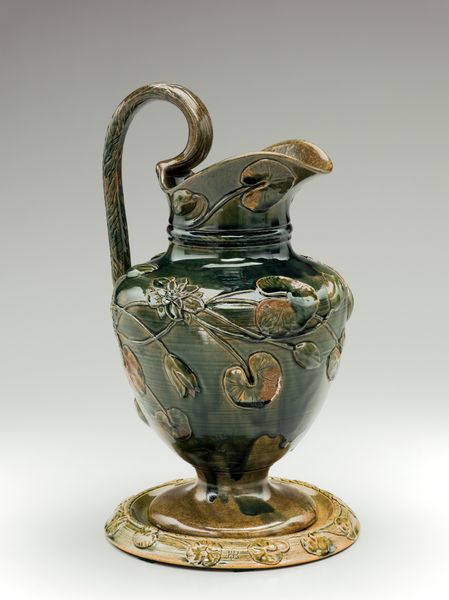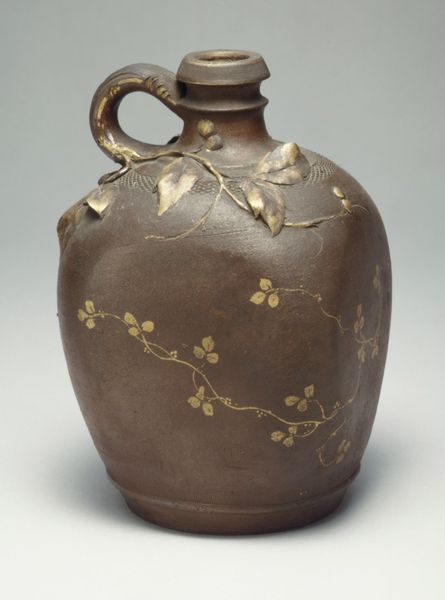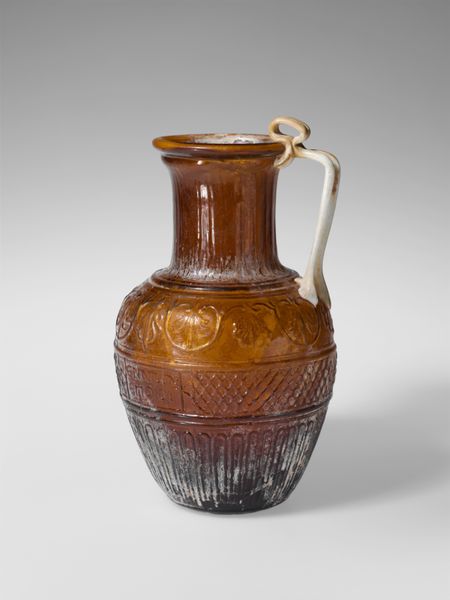
Dimensions: object: 170 x 140 x 140 mm
Copyright: © The estate of Michael Cardew | CC-BY-NC-ND 4.0 DEED, Photo: Tate
Editor: This is Michel Cardew's "Lidded Tobacco Jar," held at the Tate. It feels quite grounded and earthy. What stands out to you formally? Curator: Note how the artist employs horizontal bands to visually anchor the rounded form of the jar. The glaze pools and thins, creating a dynamic interplay of light and shadow that enlivens the surface. Do you observe how this affects your perception? Editor: I see! The variations in the glaze do add depth and visual interest. The abstract motifs also seem to disrupt the static nature of the bands. Curator: Precisely. The curves of the decorative elements contrast with the rigidity of the lines, creating a formal tension. A sophisticated dialogue between form and surface. I'm glad you noticed that. Editor: Thank you. I had not considered that before.
Comments
tate 10 months ago
⋮
http://www.tate.org.uk/art/artworks/cardew-lidded-tobacco-jar-t12116
Join the conversation
Join millions of artists and users on Artera today and experience the ultimate creative platform.
tate 10 months ago
⋮
Bernard Leach’s pottery in St Ives employed numerous assistants and apprentices, in part deliberately to spread Leach’s aesthetic and moral values. Cardew was the first assistant there, arriving in 1923. He left in 1926 and founded his own pottery, first at Winchcombe in Gloucestershire and then, in 1939, at Wenford Bridge in Cornwall. From 1942 to 1965 he taught and worked in Nigeria, absorbing influences from local traditions into his own work. Gallery label, September 2016
